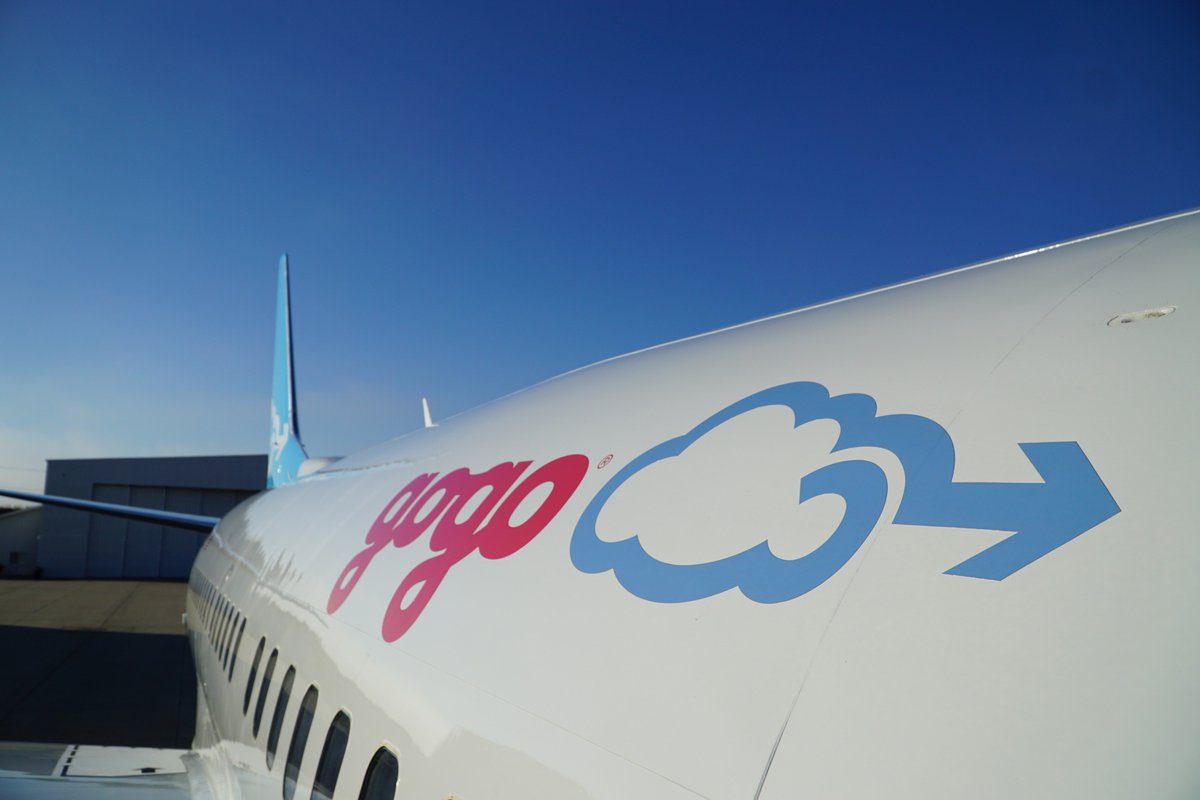Products You May Like
WASHINGTON — Gogo, an in-flight Wi-Fi provider with capacity on 34 satellites, will seek price concessions to rein in bandwidth costs as airlines continue to ground flights amid coronavirus-related travel bans.
Gogo CEO Oakleigh Thorne said the coronavirus pandemic is partly behind the company’s cost-saving efforts, since decreased airline traffic has had a knock-on effect on demand for passenger Wi-Fi.
“This is a very, very, very bad moving situation in our industry,” Thorne said during a March 13 earnings call.
Gogo reported a net loss of $146 million on $835.7 million in 2019 revenue. The company narrowed its losses by 10% from 2018 while boosting free cash flow to $162.6 million, beating forecasts by $100 million.
Because the coronavirus is driving airlines to remove planes from service, Gogo is not issuing financial guidance for 2020, Thorne said.
“How badly we’re hit will depend on what happens with load factors and how long travel is impacted by the virus,” he said.
Thorne said Gogo plans to use its heft as a large buyer of satellite capacity to get more favorable terms for capacity leases.
“We are a very valuable customer to the satellite companies,” Thorne said, adding that for some operators Gogo is their largest customer. “We [were] the fastest growing customer prior to coronavirus, and we will be the largest customer and the fastest growing after coronavirus passes, so there is a lot of incentive for them to work with us to help us get through this pandemic.”
Gogo leases substantial amounts of capacity from Intelsat and SES, according to a filing with the U.S. Securities and Exchange Commission. In October, Gogo announced an agreement to use capacity on the upcoming Eutelsat-10B satellite after it launches in 2022. Gogo also leases 18 teleports to support its satellite Wi-Fi services.
“One can look at the satellite contracts and think they are fixed, but they also can be renegotiated,” Thorne said.
Gogo has $845.8 million in satellite transponder and teleport services under contract, of which $141.3 million are payable in 2020, according to the SEC filing.
Lower prices on the horizon
Thorne said two-thirds of the capacity Gogo leases outside of North America is up for renewal over the next three years. Recent replacement contracts Gogo is signing are 67% cheaper on average, Thorne said, indicating the company can continue to shed costs.
Furthermore, some new contracts are structured so that Gogo only pays for capacity it uses, not all the capacity it has access to over a given geographic area.
Using so-called managed services contracts lets Gogo “buy by the drink instead of in bulk,” Thorne said.
“This model has the benefit of reducing our fixed cost, increasing the burstable capacity we can bring to airlines, improving our capacity utilization, and enabling us to tailor solutions to individual airline’s needs,” he said.
Gogo is incorporating managed services contracts into its global Ku-band satellite network, and exploring new regional Ka-band managed service agreements, Thorne said.
Gogo is also ready to include capacity from new satellite constellations in low and medium Earth orbit, Thorne said. The ThinKom phased-array antennas it uses on aircraft are well suited for non-geosynchronous constellations, Thorne said.
Gogo’s cost-saving efforts will include efforts to renegotiate contracts with airlines as well, including legacy contracts where Gogo subsidizes antenna installation, Thorne said. As an additional measure, Thorne said he would defer his 2019 bonus “until Gogo is in happier times.”
